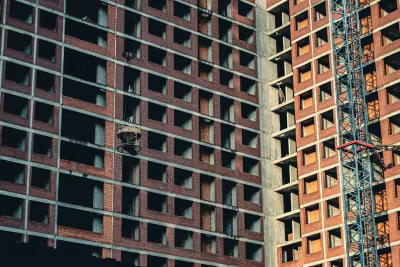As the proud owner of a home in the beautiful state of Colorado, you've likely invested a significant amount of time, money, and emotion into making your living space just right. Whether it's a cozy cabin in the mountains or a modern condominium in downtown Denver, your home is your sanctuary. However, what happens when the dream of homeownership turns into a nightmare due to consumer fraud in home construction?
Consumer fraud in the realm of home construction is unfortunately more common than one might think. Indeed, since 2007, the Federal Trade Commission has reported more than 109,000 home improvement scams. This accounts for more than 6,000 per year. From shoddy workmanship to outright scams, these fraudulent practices can leave homeowners with not only financial burdens but also significant safety hazards within their homes.
In the state of Colorado, where construction is booming and homeowners are constantly seeking to improve and renovate their properties, it's crucial to be aware of the warning signs of consumer fraud. Knowing what to look for can help you protect yourself and your investment. Here are 10 warning signs from a consumer fraud attorney every Colorado homeowner should know:
Unlicensed or Uninsured Contractors: One of the first red flags of potential consumer fraud is dealing with contractors who are not properly licensed or insured. Working with unqualified individuals puts you at risk of subpar workmanship and legal liabilities.
Pressure Tactics: Beware of contractors who pressure you into making quick decisions or paying large sums of money upfront. Legitimate professionals will provide detailed estimates and give you the time you need to make an informed decision.
Lack of Written Contracts: A reputable contractor will always provide a written contract outlining the scope of work, timeline, and costs involved. If a contractor is reluctant to provide a contract or asks you to sign a vague agreement, proceed with caution.
Significant Price Discrepancies: Be wary of contractors who offer significantly lower prices than their competitors without a valid explanation. Extremely low bids could indicate the use of inferior materials or shortcuts in the construction process.
Substandard Materials: Consumer fraud often involves the use of substandard or counterfeit materials to cut costs. Insist on high-quality materials and verify their authenticity before construction begins.
Unexplained Delays: While delays can sometimes occur due to unforeseen circumstances, repeated or unexplained delays in the construction process may be a sign of incompetence or fraudulent behavior.
Lack of Permits: Construction projects requiring permits should always be properly documented and approved by local authorities. If your contractor suggests bypassing the permit process, it could be a red flag for potential fraud.
Poor Communication: Effective communication is essential in any construction project. If your contractor is unresponsive to your calls or emails, or fails to provide regular updates on the progress of the project, it may indicate a lack of professionalism or accountability.
Unsatisfactory Workmanship: Upon inspection of completed work, if you notice sloppy craftsmanship, shortcuts, or deviations from the agreed-upon plans, it's crucial to address these issues immediately to prevent further problems down the line.
Refusal to Provide References or Documentation: Legitimate contractors should have no hesitation providing references from satisfied customers or documentation of their credentials and past projects. If a contractor refuses to provide this information, it's a clear warning sign to proceed with caution.
If you suspect that you've been a victim of consumer fraud in home construction, it's essential to seek legal guidance from a consumer fraud attorney promptly. A skilled consumer fraud attorney specializing in construction law can assist you in evaluating your case, navigating complex legal processes, and pursuing compensation for damages incurred.
A consumer fraud attorney can also help gather evidence, negotiate with contractors or insurance companies, and, if necessary, represent your interests in court. With their expertise and advocacy, you can increase your chances of achieving a favorable outcome and holding responsible parties accountable for their actions.
Knowing when to contact a consumer fraud attorney is crucial in protecting your rights as a homeowner. If you encounter any of the warning signs mentioned above or have concerns about the quality and integrity of your construction project, don't hesitate to schedule a consultation with a reputable Colorado consumer fraud and construction defects lawyer in Denver.
In conclusion, awareness of the warning signs of consumer fraud in home construction is paramount for every Colorado homeowner. By staying vigilant, asking the right questions, and seeking legal assistance when necessary, you can safeguard your investment and ensure that your home remains a safe and secure haven for years to come.
Have Questions About Consumer Protection?
Our experienced construction defect attorneys are here to help. Schedule a free 15-minute screening call to discuss your situation.




